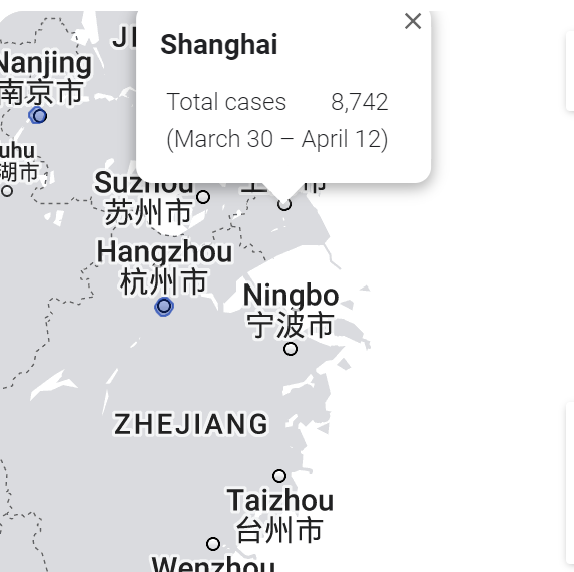Covid Sparks Shanghai Lockdown, Possible Human Rights Violations

A human rights catastrophe is brewing in Shanghai as Covid cases are spiking and kids are being separated from their parents.
At the start of the pandemic, many cities around the world were under lockdown. Now, life in many countries are making their way back to normal. But Shanghai, a city of 26 million people, is now out of control.
Shanghai is currently in lockdown, and there are possibly inhumane policies occuring in an attempt to control Covid cases.
With Omicron still prevalent, Shanghai had a daily increase of 13,000 cases on April 4, and citizens are currently not able to leave their neighborhoods. People cannot buy food, and many online delivery services like Hema and Dingdong have either been banned or are extremely expensive. Many citizens are living on or waiting for government subsistence. A Shanghai TV program is promoting a five-day fasting method.
According to the New York Times on April 2, on top of scarce food, current policies are causing more serious harm. Children over seven years old are being separated from their parents if anyone tests positive in the family. People on social media send horrifying images, videos, and stories to ask for help, talking about how non-Covid patients, even with deadly diseases or under emergency, are being rejected help from hospitals and by police; or how there is also no protection for pets, and medical staff beat a dog to death after its owner tested positive.
Because media is state-run in China, individual accounts and opinions vanish quickly on the internet.
Katy Guo, a sophomore whose family is currently in Shanghai, is worried.
“My mom says there’s no food at home,” she said. “There’s positive cases in the neighborhood, so my family could not go out.”
Katy said that having a younger brother makes her family more anxious under the current policy.
“My mom is very worried that the police will take my younger brother away from her,” Katy said. “Only kids under seven can have their parents in [their] company, but when you are eight you are still very young! The hospitals built for quarantine also have really bad conditions, so I’m scared if anyone tests positive in my family.”
Katy has lived in Beijing for most of her life, and just moved to Shanghai.
“My mom now thinks that Shanghai is not very good, and I also lost trust in the city,” Katy said. “I think Shanghai now is like the Soviet Union. Or ‘1984.’”
Katy said it’s unfair that although the government is distributing food to each neighborhood, “Some areas have enough, while others are literally just hungry.”
Mary Zhou, a sophomore from Shanghai, feels her family is in a stable situation.
“We stored a lot of food at home, so we’re in good shape,” she said.
The lockdown is about individuals’ lives at risk, but it’s also about Shanghai as a relatively free city in China. According to the New York Times on April 8, “the crisis in Shanghai is shaping up to be more than just a public health challenge. It is also a political test of the zero tolerance approach at large, on which the Communist Party has staked its legitimacy.”
“Shanghai is China’s most populous metropolis, its shimmering commercial heart,” the article stated. “It is home to a vibrant middle class and many of China’s business, cultural and academic elite. A large share of foreign-educated Chinese live in Shanghai, and residents’ per capita disposable income is the highest in the country.”
People are not only upset about not having food and being separated from their children, but also the ideology behind it.
“Even in a country where dissent is dangerous,” said the article, “many [in Shanghai] have long found ways to demand government responsiveness and have a say over their own lives.”
In the article, Shanghai citizen Kristine Wu said she “used to live pretty comfortably, and before anything had happened, everyone was very polite, very rule abiding. Now all that has just crumbled.”












